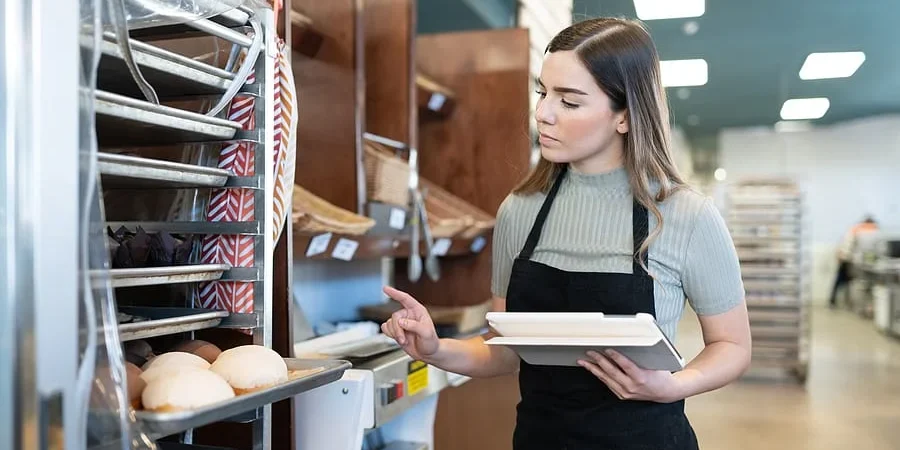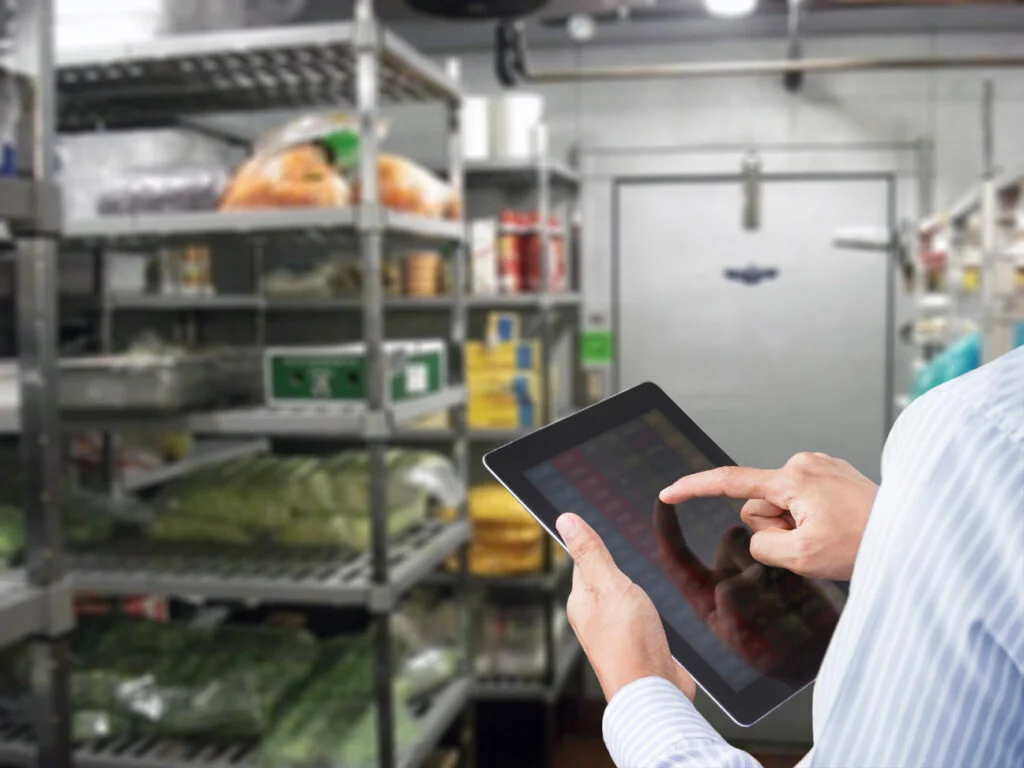Restaurant inventory management is a process for identifying more cost-effective food, beverage and supply orders while keeping track of the materials and supplies you have on hand for shifts.
This article provides advice and tips on how to manage your restaurant inventory efficiently, helping you reduce waste, increase efficiency and optimise expenses.

Think about the following in order to maintain precise stock levels and spot any discrepancies:
Plan regular inventory audits – ideally weekly or monthly.
Use inventory management software to track inventory levels and provide reports.
Compare physical counts with recorded inventory to find discrepancies.
Analyse data to spot trends, such as highly or poorly selling items and modify your order as necessary.
Item | Physical Count | Recorded Count | Discrepancy |
Lettuce | 30 | 30 | 0 |
Tomatoes | 50 | 48 | +2 |
Chicken Breast | 75 | 80 | -5 |
The FIFO system lowers the chance of deterioration and waste by ensuring that older stock is used first.
Organise your storage spaces to make it simple to access older inventory.
Label products with expiration or best-before dates for efficient inventory rotation.
Teach employees the value of utilising older stock first and proper product placement.
Minimise food loss, cut down on storage expenses and prevent overstocking, by keeping processes for ordering and receiving.
Set par values for each item in accordance with demand and consumption trends.
Maintain connections with dependable suppliers and bargain for better terms.
Use a digital ordering system to automate the procedure and cut down on mistakes.
Inspect incoming deliveries for accuracy and quality to avoid issues down the line.

The procedure may be made much simpler by using inventory management software, which also offers real-time data for better decision-making.
Eliminate manual record-keeping by centralising inventory tracking.
Set up automatic reorder points to guarantee prompt replacement.
For data-driven insights, create reports on inventory utilisation, trends and costs.
When it comes to maintaining effective inventory management procedures, your workforce is essential. With proper training you will increase their overall efficacy.
Inform employees of the value of accurate inventory management and how it affects expenses and business operations.
Educate users on how to use inventory management software and safe storage practises.
Encourage teamwork and accountability among employees by requesting feedback from them.
Recognize and reward employees that continuously exhibit excellent inventory management techniques.
For restaurants to remain profitable, reduce waste and maintain efficient operations, effective inventory management is essential. You can take control of your inventory and increase the success of your restaurant by performing routine audits, implementing FIFO, streamlining ordering and receiving, embracing technology, and training your staff. A well-managed reservation system and proper inventory management go hand in hand, therefore for best results, think about combining the two. Here’s to efficient inventory control and a successful restaurant industry!

Unlock the tips that will help you stand out from the crowd and get more bookings!

Learn how to save time, reduce stress and fill your restaurant while you sleep!

Gen-Z marketing coordinator bringing fresh energy to web and graphic design, with a weekend habit of chasing adventure.

Gen-Z marketing coordinator bringing fresh energy to web and graphic design, with a weekend habit of chasing adventure.










Call us
Malta: +356 2033 0096
UK: +44 845 154 3698
USA: +1 (415) 231 3696
Spain: (900) 645443 (Free)
Argentina: +541151990515
Italy: (800) 769470 (Free)
Lithuania: +370 (6) 4721122
Poland: +48732083322
Resources
Call us
Connect with us
About us
Resources